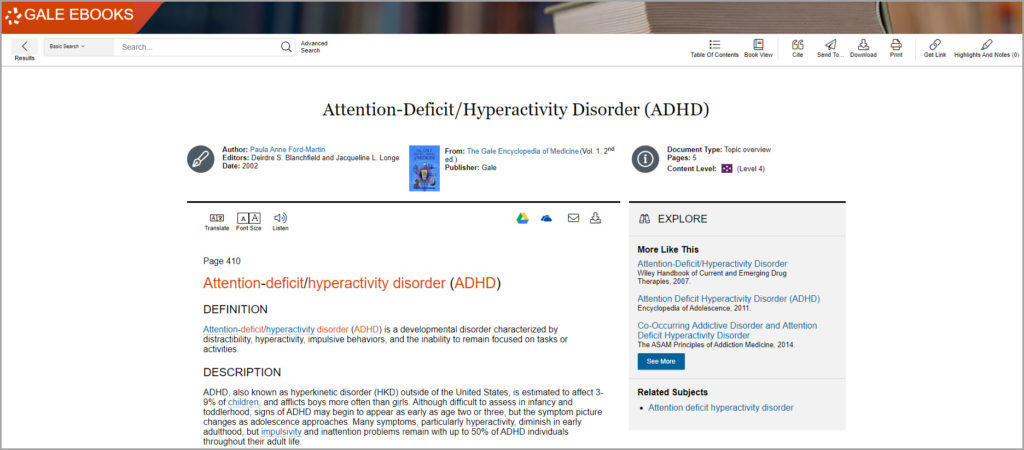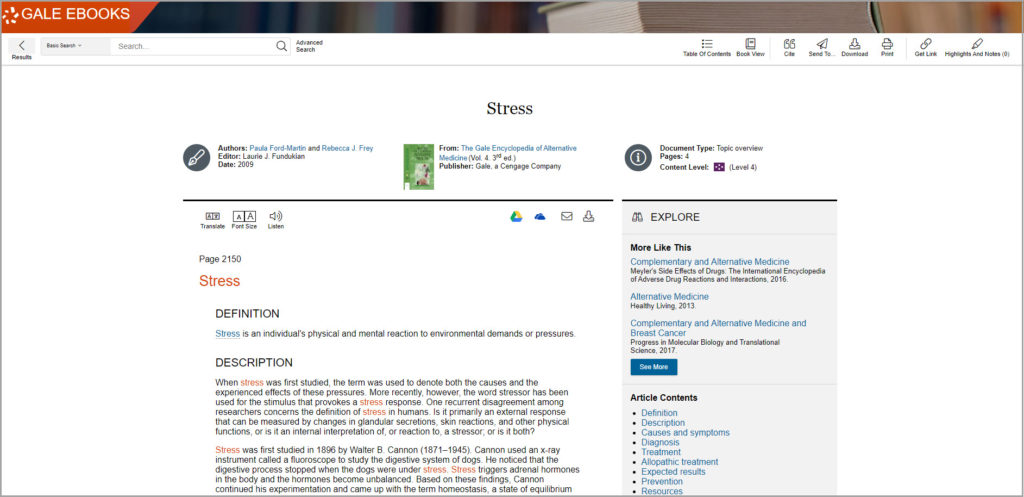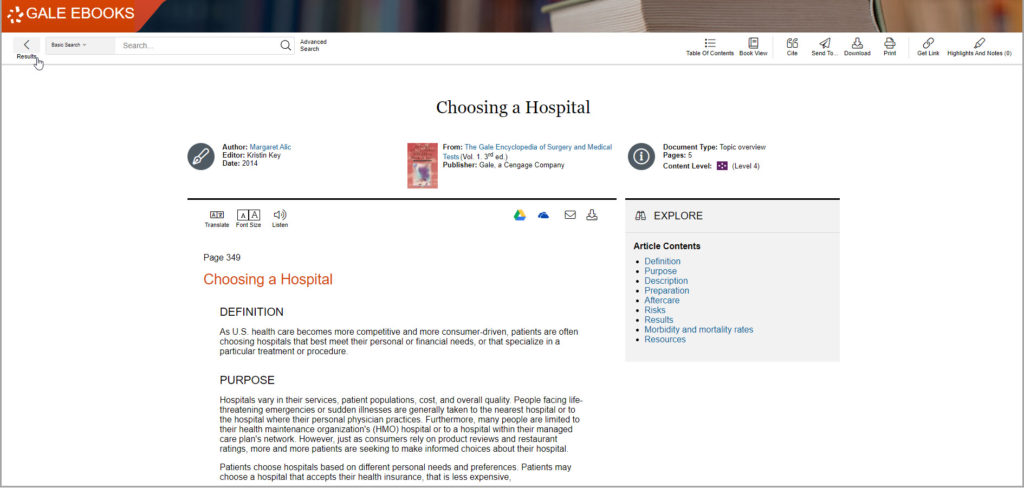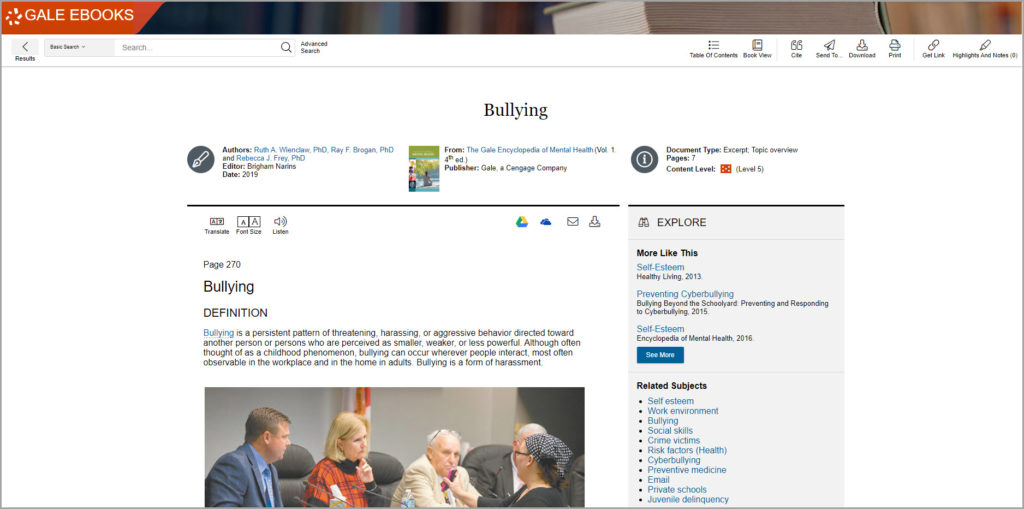| By Jacqueline Longe, Sr Content Developer, Gale |
When my college-aged son called to say he’d been diagnosed with mononucleosis for the second time in a year, I panicked. The doctor at the university clinic confirmed it with a blood test, gave my son steroids to take, and sent him home to rest. Was that all they could do? Was that all that needed to be done? My son started the school year ready to do well academically and within a few short weeks, he had missed classes due to chronic fatigue. A quick search on Google returned results that linked recurrent/chronic mono with other long-term serious illnesses—illnesses no parent wants to see associated with their child.
While my initial panic led me down a rabbit hole of terrifying information, it also called attention to my need for reliable health information. I needed to expand my health literacy so I could help my son navigate his health care needs.
I’m not alone. Health literacy—the ability to locate, digest, and comprehend health information in order to make informed personal health decisions—is necessary to navigate health care in today’s world. It is also a complex undertaking. It takes more than just listening to one’s doctor to make health care decisions. One component of health literacy is having access to quality information that helps facilitate doctor-patient discussions and coordination of health care.
With the right information, informed decisions are made. Without it, statistics show that people with low health literacy make more visits to the emergency room and have more hospitalizations. There are specific populations that are more vulnerable; however, health literacy is a vital skill that everyone needs to develop.
Gale eBooks are great resources for health literacy
Gale publishes content that covers all health and wellness disciplines to boost customer health literacy and help support users when they need information they can rely upon. No panicking necessary.
The Gale Encyclopedia of Medicine, 6th Edition is a place to start, with in-depth coverage of medical information on diseases and disorders, tests, treatments, therapies, and pharmaceuticals. This eBook includes over 2,050 entries, covering topics such as attention deficit hyperactivity disorder (ADHD), allergies, chlamydia, Clostridioides difficile, diabetes, gene editing, infectious mononucleosis, medical marijuana, opioid epidemic, vaccination, and vaping and e-cigarettes.

The Gale Encyclopedia of Alternative Medicine, 5th Edition covers hundreds of types of complementary and alternative medicine therapies, supplements and complementary health care being practiced today as well as alternative ways to treat diseases and conditions. Topics include stress, vitamins, meditation, reflexology, hypnobirthing, kinesiology, yoga, chiropractic, naturopathy, mindfulness-based stress reduction (MBSR), and osteopathy, taking into account the impact that the Affordable Care Act will have on this field of medicine.

The Gale Encyclopedia of Surgery and Medical Tests, 4th Edition provides comprehensive coverage of over 650 surgical procedures; medical tests; and related topics such as anesthetics, common lab tests and procedures, medications, and postoperative care. The encyclopedia covers all aspects of surgery and testing occurring today, such as blast injury, choosing a hospital, cytology, diabetes and surgery, face transplantation, genetic testing, and surgery and the elderly.

The Gale Encyclopedia of Public Health, 2nd Edition is an authoritative source on public health issues. Topics focus on health crises affecting the public at large, ranging from epidemic (local) and pandemic (widespread) diseases (H1N1, malaria, foodborne illnesses, West Nile, etc.); chronic conditions such as famine, malnutrition, cancer, and diabetes; and social issues such as sexual abuse, obesity, bullying, and new substance abuse issues.

Interested in learning more or requesting pricing? Let us know!
Air Max

